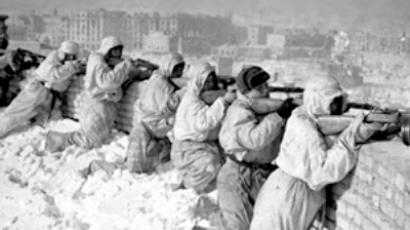Remembering Solzhenitsyn a year after death
It’s been a year since the great writer and severe critic of the Soviet regime, Aleksandr Solzhenitsyn, passed away. His life was one of battle - against injustice, intolerance and death.
When, back in the 1950s, Solzhenitsyn served his term in the Soviet GULAG for anti-state propaganda, doctors told him he only had few weeks to live because of a cancerous tumor.
The writer managed to overcome the fatal disease and lived for another 50 years.
“It’s hard to say what it was – a medical miracle or God’s will. But he always said that this was his second chance, another life he was given the gift of. And he tried to do everything to repay it. That gave him motivation to write, and write, and write,” says Solzhenitsyn’s biographer Lyudmila Saraskina.
It was under the influence of life behind the walls of labor camp that Solzhenitsyn wrote arguably his best novels. Including what is still regarded by many as his best-known work, The GULAG Archipelago, which brought the brutality of the Soviet system to the world.
In 1970, he was awarded the Nobel Prize for literature, but with such recognition in the West was seem as a downfall in the Soviet Union. For what was perceived as rigid anti-Soviet views, Solzhenitsyn was stripped of his Soviet citizenship and exiled from the county.
“We always understood he could have been killed in a set-up car crash or something like that. Such practices were quite common at that time. Actually there was an assassination attempt on him in 1971,” the writer’s widow Natalya Solzhenitsyna said.
He found himself in the West – so adoring of him and so much unknown to him. He was greeted as a hero, but what soon came out of his mouth wasn’t quite what was expected. Solzhenitsyn – once an outspoken critic of the Soviet regime – lashed out at Western democracy.
“The Western community was happy to see him. But even there, he acted like a man of independent opinion. He was a prophet, because back then – in the 1970s – he was already warning the Western world of what it is going through now with the global credit crunch,” said poet Olesya Nikolaeva.
Once he even rejected a dinner with American President Ronald Reagan.
“The President invited him, there was a big reception. Solzhenitsyn said, “I’m sorry, Mr. President, but I don’t have time for this. If you want my advice on something, I’ll be glad to come and see you,” stage director and close friend of Aleksandr Solzhenitsyn, Yury Lyubimov, recalls.
Solzhenitsyn came back to a new Russia in 1994, returning to a country he only thought he knew. And yet again his arrival was met by an exultant nation. His close friend, poet Yury Kublanovsky, says that Solzhenitsyn’s first years in Russia were especially hard for him.
“He returned amid what could be best described as a criminal revolution, wrongly judged by many to be a democratic revolution. His address to the State Duma was boycotted by deputies. Boris Berezovsky – who back then controlled state television – denied Solzhenitsyn air-time,” recalls Kublanovsky.
He fought against the regime, against cancer, against prosecution and incarceration, and survived an assassination attempt. Solzhenitsyn lived through chaotic the Nineties to see the country – as he later said – free from things he had criticized before the exile.
Up to his last breath, the legendary writer had his own, strong critical opinion on just about everything.
One of the best-known writers of the 20th Century lost his battle against death on 3rd August, 2008 at the age of 89.













